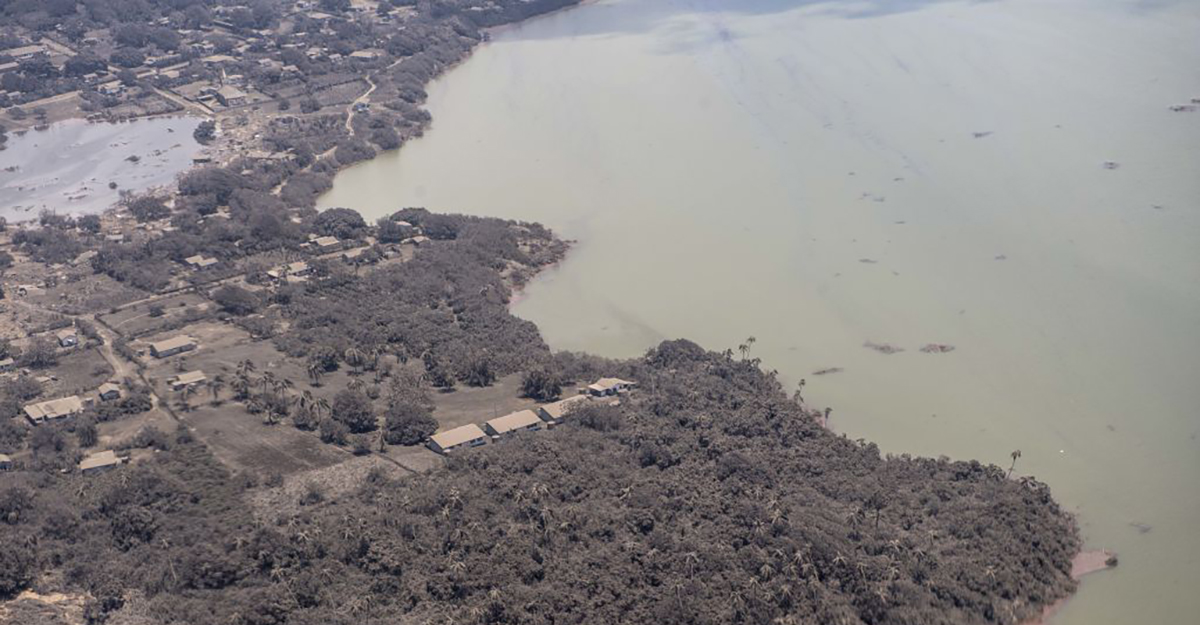Tonga Eruption Is One For The Record Books
Department of Geology and Geophysics Professor Dr. Andreas Kronenberg explains why the recent Tonga eruption was one of the strongest ever recorded.
Jan 26, 2022

The recent violent volcanic eruption on the Pacific island nation of Tonga is believed to be one of the strongest ever recorded, and future eruptions could be possible, according to a Texas A&M University geophysicist.
Dr. Andreas Kronenberg, professor and holder of the Michael T. Halbouty Chair in Geology at Texas A&M, said the eruption on Tonga likely ranks among the strongest in at least 30 years. The Polynesian country has about 170 islands, and is 500 miles east of Fiji.
The eruption caused a huge ash cloud to form on many of the islands, killed at least three people, and could be heard in New Zealand and seen from space.
“In general, the volcanoes around the Pacific Rim are much more powerful and explosive than Hawaiian-type volcanoes, mostly because of the volatile content and magma compositions in them,” Kronenberg said.
“This is why we are concerned about the volcanoes in the Oregon, Washington and Alaska regions,” Kronenberg said. “However, the Tonga subduction zone is a large one and the entire Southwest Pacific has what we call ‘stratovolcanoes.’ These are extremely powerful volcanoes and are also the kinds that include Mt. Vesuvius that covered Pompei in Italy and Mt. St. Helens, which exploded a few decades ago.”
Mt. St. Helens, which exploded in 1980, is considered the most powerful volcanic eruption in U.S. history and killed 57 people.
The largest eruption ever is believed to be the eruption of Krakatoa, which exploded near Indonesia in 1883 and killed more than 36,000 people.
Some have compared the Tonga eruption as similar to Krakatoa, and NASA has said the Tonga explosion was at least 500 times more powerful than the bomb dropped on Hiroshima in 1945.
“Krakatoa was truly epic, and Tonga was obviously devastating,” Kronenberg said. “And it appears that water entering into the volcano internally added to its explosiveness. The result can be tsunamis because they can be triggered by any disturbance of the seafloor that quickly moves large volumes of seawater, such as faults that suddenly change the shape of the seafloor.”
Could the Tonga explosion mean future eruptions in the area are possible?
“It is possible such an eruption could trigger nearby activity,” Kronenberg said. “But it is not necessarily guaranteed. This is a controversial topic when discussing earthquakes and subsequent eruptions, especially in areas over 10 to 15 miles from the original eruption.”
By Keith Randall, Texas A&M Marketing and Communications
